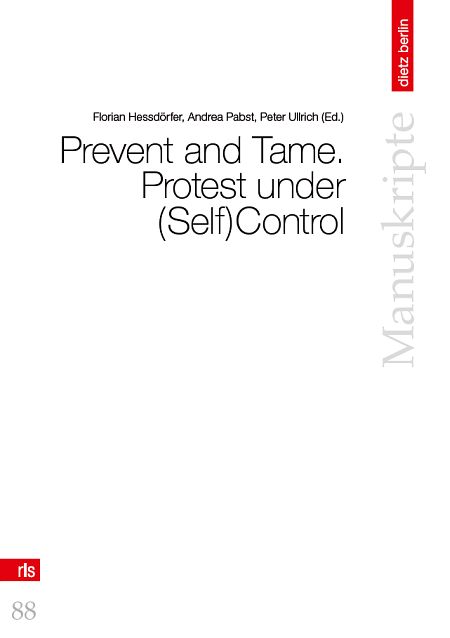Félix Guattari, Antonio Negri: New Lines of Alliance, New Spaces of Liberty (1985/2010)
Filed under book | Tags: · autonomy, communism, ideology, politics, social movements, subjectivation

“The project: to rescue ‘communism’ from its own disrepute. Once invoked as the liberation of work through mankind’s collective creation, communism has instead stifled humanity. We who see in communism the liberation of both collective and individual possibilities must reverse that regimentation of thought and desire which terminates the individual….”
Thus begins the extraordinary collaboration between Félix Guattari and Antonio Negri, written at dawn of the 1980s, in the wake of the crushing of the autonomous movements of the previous decade. Setting out Guattari and Negri diagnose with incisive prescience transformations of the global economy and theorize new forms of alliance and organization: mutant machines of subjectivation and social movement.
Prefiguring his collaboration with Michael Hardt, Negri and Guattari enact a singular hybridization of political and philosophical traditions, brining together psychiatry, political analysis, semiotics, aesthetics, and philosophy. Against the workings of an increasingly integrated world capitalism, they raise the banners of singularity, autonomy, and freedom to search out new routes for subversion.
This newly expanded edition includes previously untranslated materials and a new introduction by Matteo Mandarini.
Main text originally published in French in 1985 as Les nouveaux espaces de liberté. First English edition, 1990, published under the title Communists Like Us.
Translated by Michael Ryan, Jared Becker, Arianna Bove, and Noe Le Blanc
Edited by Stevphen Shukaitis
Publisher: Minor Compositions, London / New York in conjunction with Autonomedia and MayFlyBooks
ISBN 978-1-57027-224-0
144 pages
PDF (updated on 2012-7-27)
Comment (0)Hessdörfer, Pabst, Ullrich (eds.): Prevent and Tame. Protest under (Self-)Control (2010)
Filed under book | Tags: · activism, control society, governmentality, neoliberalism, power, social movements, subjectivation, surveillance

The common dualistic approach to social movements tends to see power and resistance as separate and independent antagonists.
The contributors to this book aim to transcend that approach, arguing that to adequately analyze ongoing struggles, it is also critically important to trace the constitutive interconnectedness between social movements and power. This is the aim of the title “Prevent and Tame”: emergent strategies to prevent and tame protest—whether they are undertaken by the state or by factions within the movements themselves—have given rise to new kinds of social relations and regulations that call for a new approach to research on social movements and protest.
Inspired by Foucault and others, this book offers theoretical and empirical investigation into the implications that governmentality studies and subjectivation perspectives may have for a deeper understanding of the dynamics in the relationship between power and movements. The articles reflect on the effects of current neo-liberal or neo-social transformations on social movement practice, including the impact of surveillance, the criminalization and stigmatization of protest, and how these can lead movements to engage in self-taming behavior amongst themselves.
Taken as a whole, this book suggests that to take the struggles of social movements seriously, requires to acknowledge the complexity of the power dynamics in which they are involved. In so doing, the authors’ aim is not to tame protest by over-amplifying its apparent obstacles, but to prevent its energy from being pointlessly wasted or misdirected (i.e. by being spent in the wrong places, in false conflicts, or even in fighting the clouds they cast themselves).
Includes contributions by Stephen Gill, Peter Ullrich, Florian Heßdörfer, Andrej Holm, Anne Roth, Marco Tullney, Michael Shane Boyle, Darcy K. Leach, Sebastian Haunss and Nick Montgomery
Editors: Florian Hessdörfer, Andrea Pabst, Peter Ullrich
Publisher: Rosa Luxemburg Stiftung, Karl Dietz Verlag Berlin, November 2010
Series: RLF Manuskripte, Volume 88
ISBN: 978-3-320-02246-4
Jacques Rancière: The Politics of Aesthetics: The Distribution of the Sensible (2000-)
Filed under book | Tags: · aesthetics, art, art theory, avant-garde, philosophy, politics, subjectivation

“The Politics of Aesthetics rethinks the relationship between art and politics, reclaiming “aesthetics” from the narrow confines it is often reduced to. Jacques Rancière reveals its intrinsic link to politics by analysing what they both have in common: the delimitation of the visible and the invisible, the audible and the inaudible, the thinkable and the unthinkable, the possible and the impossible.
Presented as a set of inter-linked interviews, The Politics of Aesthetics provides the most comprehensive introduction to Rancière’s work to date, ranging across the history of art and politics from the Greek polis to the aesthetic revolution of the modern age.”
First published as Le partage du sensible: esthétique et politique, La Fabrique, 2000.
Translated with an introduction by Gabriel Rockhill
With an afterword by Slavoj Žižek
Published by Continuum, 2004
ISBN 0826489540, 9780826489548
116 pages
PDF (updated on 2024-2-20)
Comment (0)
